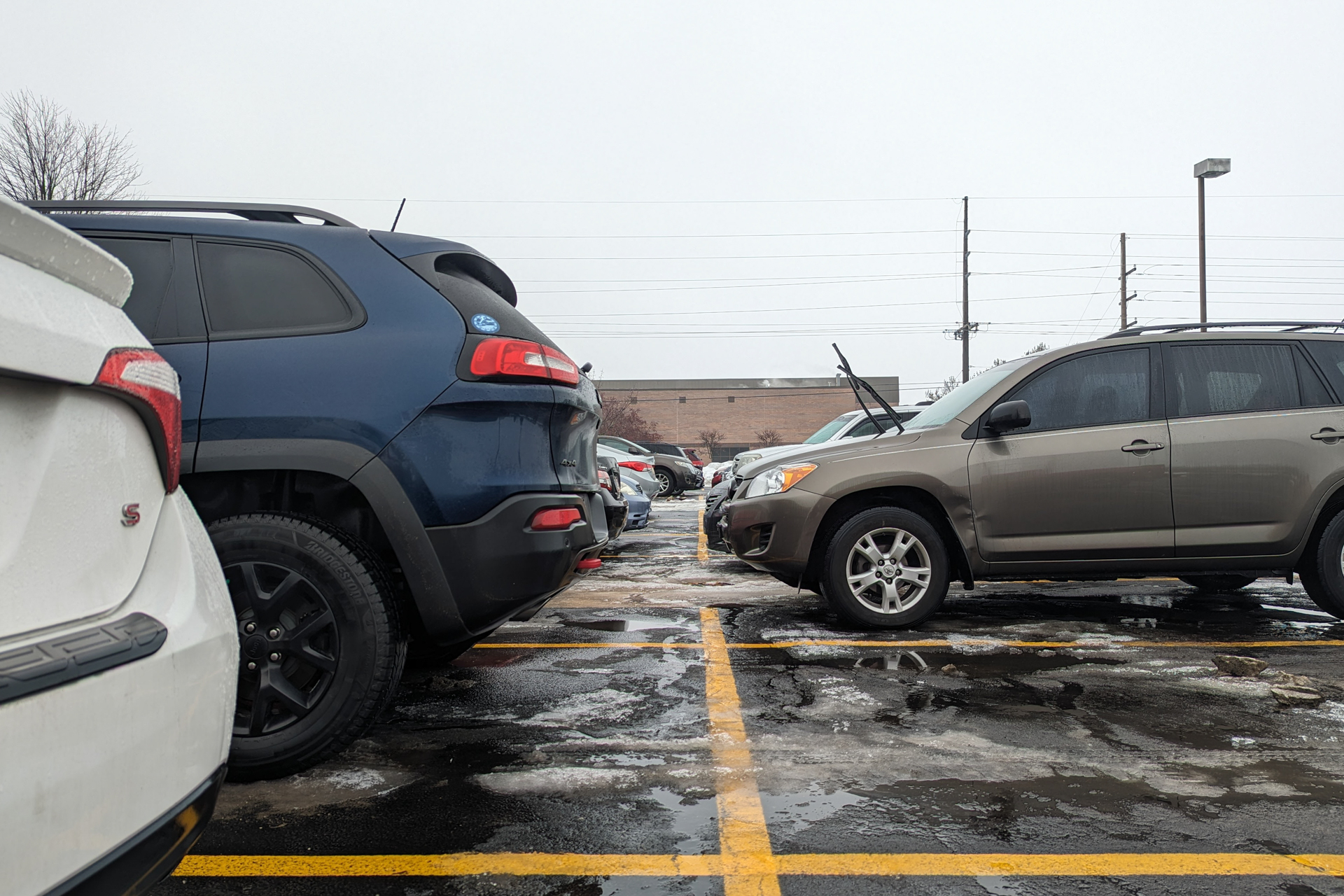The parking lot on Ninth Street is closed to students this semester. The lot has been set aside for the construction workers doing the Westlawn renovation. It was primarily used by commuter students, who are now having to make alternate arrangements.
GC administration was not notified of the Ninth Street lot closure until early August. Chad Coleman, director of campus safety, manages the parking areas on campus. He found out the plan was to repurpose the lot after he had already finalized the new parking map. “It was just kind of an oversight … not on us, but just like facilities communicating,” he said.Some parking spaces in the faculty lot by Wyse Hall were also allocated to the project, and the parking lot between the Visual Arts building and the Union Building was closed to accommodate the mobile kitchen for Union dining and AVI employee parking. This juggling means that more faculty, Kulp residents and commuter students are vying for the parking spaces in the Physical Plant and the Wyse Hall lots.
Destiny Salvador, a junior marine biology student who commutes to campus, feels there is not enough parking in useful places. “I try to park by the Phys Plant because all my classes are down there, but the majority of the time I’m down here [in the Church-Chapel lot],” she said. Salvador expressed that trying to find parking has caused her to be late for her classes on some occasions, particularly with the recent weather conditions.
Karen Guerrero, a senior social work major, said parking for commuters is very limited now that the lots have new restrictions. “I know some commuters do park at the hospital actually across the street, and even though that’s smart, it’s dangerous because when you do need to cross the street there’s a lot of cars,” she said.
Coleman also noted the use of the hospital lot, saying he’s received complaints from the hospital, threatening to tow GC students’ cars parked there.
Naomi Torres, a senior sociology major, thinks having more on campus space for commuters would help their experience, particularly regarding night classes.
“Goshen College, make your commuter lounge 24/7 please,” Torres said. “Because like, the computer lab is okay, but sometimes. . . as a commuter I need a place to nap. . . and you can’t be going home and coming back, especially if I have a night class, and a lot of commuters have night classes.”
When asked about the possibility of extended hours and better places to sleep, Gilberto Pérez Jr, vice president for student life, said he has not heard this concern, and he welcomes feedback from commuters about their needs. “Right now we have an awkward situation because our director of health and wellness resigned. That would be the person to go to . . . if we have students who are not feeling comfortable or they’re not feeling safe with the spaces that we have,” Pérez said.
The commuter lounge has also been more full since construction, according to Stephany Claudio, a junior psychology major. While she said it’s nice to have a lot of people using the space, “the commuter lounge is not very big for the amount of commuters we have, so it can be difficult.”
The extra traffic in the commuter lounge comes from the closure of the Leaf Raker Cafe. It used to be a place where commuter students would hang out between classes. This year the space (now Union Dining) is the only campus dining facility, drawing large amounts of residential students and faculty/staff to the space during the day.
“I’m not sure how we fix or solve the problem because it’s a one-year inconvenience. I mean, the dining experience, you know, we lost the Leaf Raker, we lost the parking lot, we lost the leadership hub, like everybody has kind of had to make a little bit of sacrifices,” Coleman said.



